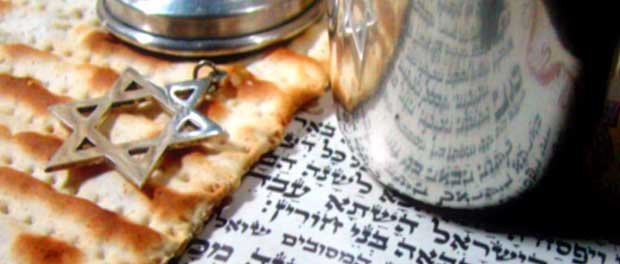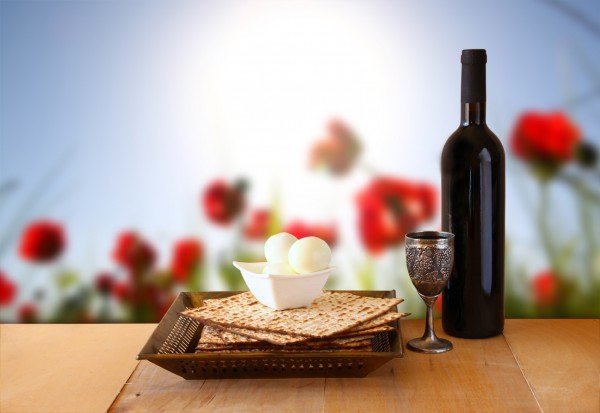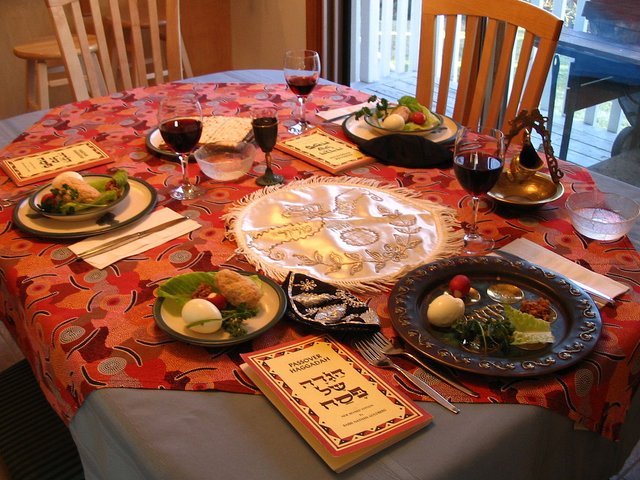Today. March 31, 2018 holiday - Pesach, or Easter
Pesach, or Easter, is the most ancient of Jewish holidays, it is associated with one of the most important events in Jewish history - with the Exodus from Egyptian slavery about 3300 years ago, in 2448 by the Jewish calendar.
The Pesach festival marks a chain of events, as a result of which the Jews became a people. The Israelites came to Egypt as one family - the family of Jacob, consisting of seventy people, but came out as a nation of six hundred thousand. Initially, the family of Jacob was hospitably received in the land of Goshen (one of the provinces of Egypt), but when the Jews became "too much," special measures were taken. All the inhabitants of the country were given labor service, the Jews - especially hard. Jews' houses were tapped and searched, wives were separated from their husbands, newborn boys were killed.

Moshe (Moses) was the boy who was destined to survive and save his people. Everybody knows this story. A surprising combination of circumstances saved him from imminent death at the hands of the Egyptians and led to the fact that Moshe was brought up in the palace of the pharaoh, but he always felt himself part of his people. For the murder of an Egyptian who beat a Jew, he was sentenced to death, fled, lived in Africa and the Middle East for many years. One day, driving a herd of sheep across the Sinai Peninsula, I saw a burning but not burning bush ("burning bush"). Out of the fire came the voice of the Most High who commanded Moses to go to Egypt and lead the Jews out of slavery.
The name "Pesach" is interpreted by some researchers as a "transition", the exodus from the land of Egypt, others are associated with the history of the holiday. Pharaoh did not want to let the Jews go, and God sent ten "executions" to Egypt: the transformation of Nile water into blood, the emergence of a myriad of toads, invincible hordes of lice, wild animals, the loss of livestock, ulcers, the death of crops from hail and locusts, a continuous three-day gloom and , finally, the death of first-born. God killed the first-born of the Egyptians, but missed ("Pesah" in Hebrew) the houses of the Jews. Another "Peh-sah" is interpreted as "speaking lips", and this, of course, corresponds to the fact that the main commandment of the Pesach Festival is to talk about the history of the Exodus.

Passover - the feast of spring - symbolizes the awakening of nature, the renewal of the world and the liberation of man. It is a holiday of gaining freedom and dignity. The Jews had to choose from the cattle to which they were assigned as shepherds (and who did not perish like the Egyptian cattle), young lambs, slaughter them, roast them and eat them with bitter herbs and unleavened bread. The Barashki, which were sacred animals for the Egyptians, were required not just to eat, but to do so openly, in front of the Egyptians, and a few days before that, it was necessary to mark the jambs of the doors of their houses with the blood of these rams in the daylight. And on the night when the first-born lost their lives in every family of the Egyptians, death passed over all the Jewish houses marked in this way.
There is a legend that before the Exodus they did not have time to ferment the dough, so they baked fresh cakes. True, there is evidence that the shepherd's feast of unleavened bread was celebrated even before Moses. But so far, matzah - the cakes that Pessah is supposed to eat - is a reminder of the bread the Jews ate while leaving Egypt hastily. Haste was not in vain - the Egyptian army led by Pharaoh chased them at the heels. But on the seventh day of the Exodus the Red Sea parted before the Jews, and then closed its waters over the heads of the Egyptians.

The holiday lasts seven days from the 15th to the 21st of the spring month of Nisan according to the Jewish calendar. Pesach, as well as Sukkot and Shavuot, is a pilgrimage to Jerusalem for sacrifices. The celebration begins on the 14th of Nisan in the evening, when the whole family and guests who came to the house gather at the festive table and read the Paschal Haggadah - the story of the Exodus of the Jews from Egypt. This meal is called "Seder" ("order" in Hebrew) and is an important part of the holiday. The Easter Seder is held in a certain, strictly established order, where each action has its own place and time. "In every generation, a Jew must look at himself as if he himself, personally left Egypt." A festive meal in millions of Jewish families in all countries of the world for centuries, with observance of the same customs, is an amazing phenomenon that helps to understand how the Jews managed to remain a single people in the conditions of centuries-old dispersion.
The day following the Passover Seder is the first day of the holiday. For religious people it is a day of prayer and rest, when all work is prohibited. For the secular part of the population of Israel, this is a day off, which it is customary to spend with family, friends, and close ones. Then there are five days, the so-called half-holidays, when some of the institutions work half a day, and some do not work at all. And the Easter week ends another holiday. Israelis like to rest and often use the Easter week for trips abroad by the whole family or for traveling around the country, arranging picnics in numerous picturesque corners of the country.